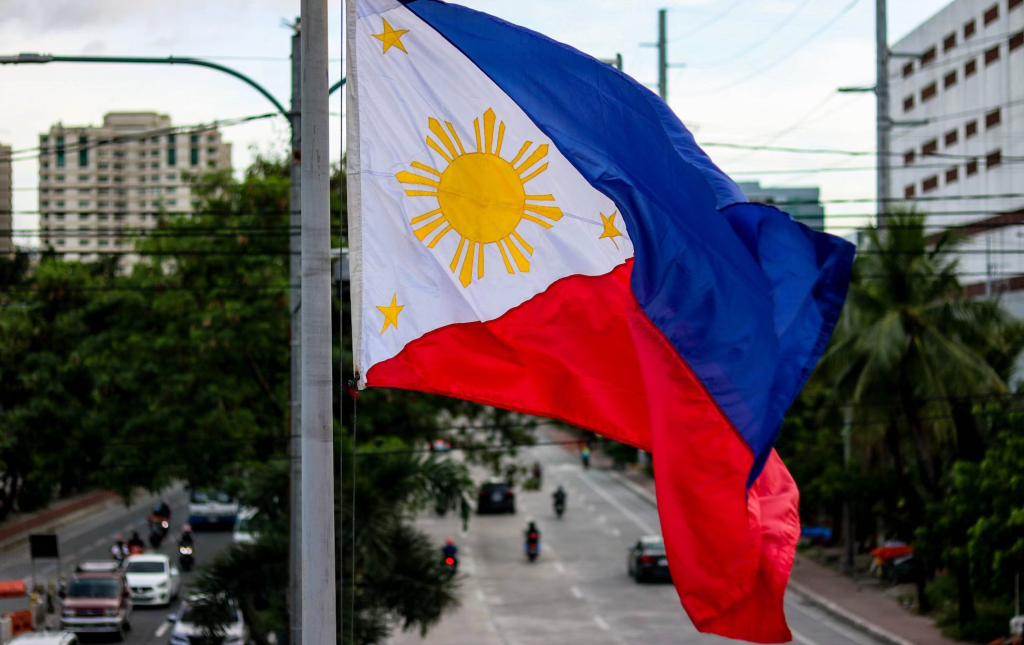Celebrating Philippine Independence Day and the Filipino Dream
As the Independence Day 2024 approaches, Filipinos across the globe prepare to commemorate the country’s storied past and its pursuit of freedom. Celebrated on June 12 each year, the Philippines Independence Day is not just a national holiday; it’s a profound time for reflection on the nation’s history, heritage, and the collective dreams of its people. Independence Day resonates deeply with the core values of freedom and independence that are central to the Filipino identity.
In the spirit of this celebration, we also embrace the significance of homeownership in the Filipino context, highlighting it as a fundamental aspect of the freedoms that underpin the Filipino Dream. The 12th of June thus becomes a symbol of both national liberty and personal sovereignty, as owning a home represents a crucial milestone in the journey towards economic independence.
It’s a day when we dive into understanding how homeownership is an integral part of the Filipino dream, playing a pivotal role in shaping our lives and communities, and reinforcing the values that Independence Day stands for.
The Philippine Independence Day 2024

The 2024 Independence Day marks 126 years since the declaration of Philippine independence from Spanish rule. On June 12, 1898, General Emilio Aguinaldo proclaimed the nation’s freedom in Kawit, Cavite, marking a pivotal moment in Filipino history. This proclamation was the culmination of a series of events that began with the arrival of Ferdinand Magellan in 1521 and the subsequent 300 years of Spanish colonization.
The Philippine revolution began with the spirit of nationalism, fueled by the writings of Jose Rizal and the revolutionary fervor of the Katipunan led by Andres Bonifacio. The Spanish-American War in 1898 provided a crucial opportunity for Filipino revolutionaries, and with the defeat of the Spanish fleet in Manila Bay, Aguinaldo’s declaration of independence followed.
While the journey towards true sovereignty continued with subsequent battles and challenges following the end of Spanish rule, Philippines Independence Day on June 12 remains a symbol of Filipino resilience and unity. The love for this special day reflects a celebration of the republic’s history, culture, and identity, represented by the three stars on the flag and the nation’s journey towards independence from Spain.
A National Holiday
On May 12, 1962, President Diosdado Macapagal issued Presidential Proclamation No. 28, which proclaimed June 12 as a special public holiday throughout the Philippines. This proclamation was made in commemoration of our people’s declaration of their inherent and inalienable right to freedom and independence.” Subsequently, on August 4, 1964, Republic Act No. 4166 was enacted reaffirming June 12 as “Araw ng Kalayaan.” This act called upon all citizens of the Philippines to observe June 12 with appropriate ceremonies befitting Independence Day.
Independence Day is treated as one of the most important public holidays in the Philippines. It is a day when Filipinos come together to honor their nation’s rich cultural heritage and its journey toward self-determination. In addition to national celebrations, families often hold reunions and gatherings to strengthen bonds and share stories of the past.
Philippines Independence Day Celebrations
On this public holiday, a large number of individuals take part in national parades, including workers, students, and representatives of the government. The principal attraction, though, is the president-led police and military procession in Manila, which is capped off with a speech and a 21-gun salute. The nation’s Independence Day celebrations are also observed by several Filipino communities abroad, gaining international recognition.
National Commemoration

Annually on June 12, Philippines Independence Day is marked by various public events and ceremonies across the country, including festivities, school programs, and speeches by the president, making it a special day to celebrate the nation’s hard-won freedom from Spain.
Flag Raising Ceremonies
Many government buildings, schools and most businesses hold flag-raising ceremonies early in the morning. These events pay tribute to the Philippine flag, the national anthem, and the sacrifices made by Filipino heroes for the country’s independence from the Spanish colony.
Nationwide Parades and Performances
Cities and towns often organize parades featuring marching bands, traditional dance troupes, and cultural performances showcasing the Philippines’ vibrant culture and rich history. These events aims to celebrate freedom, a sense of community pride, and unity.
Wreath-Laying Ceremonies
Wreath-laying ceremonies take place at monuments honoring the country’s heroes, such as the Rizal Park in Manila and the Aguinaldo Shrine in Cavite. This significant event pay homage to those who fought for the nation’s freedom.
Government Speeches and Declarations
National and local government officials deliver speeches highlighting the significance of the day and the ongoing journey of the nation. These speeches often focus on current challenges and aspirations for the country’s future.
Family Reunions and Gatherings

In addition to public celebrations, Independence Day is a holiday and a unique experience for families to come together for the first time in a while, strengthening bonds through shared memories and cultivating a sense of unity and patriotism.
Homecomings
Many families use this day as an opportunity to organize reunions or homecomings, bringing together relatives from different parts of the country and even abroad.
Shared Meals and Stories
Families often gather for meals featuring traditional Filipino dishes such as adobo, sinigang, and lechon. These gatherings provide an opportunity for older generations to share stories of the past with younger members, passing down cultural traditions and personal family histories.
Cultural Activities
Families may engage in traditional games, music, and dance to celebrate their heritage. This can include activities such as playing patintero, singing karaoke, or dancing the tinikling.
Visiting Historical Sites
Some families take the opportunity to visit historical sites and museums to learn more about the nation’s past. This can be a meaningful way to connect with the struggles and triumphs of previous generations.
Strengthening Bonds and Sharing Stories
Independence Day provides a special occasion for Filipinos to reflect on their shared heritage and strengthen their bonds as they join in festivities on this significant date, celebrating their journey to freedom and the treaty that granted it, while honoring their rich culture and the connection it brings across the world.
Connecting Generations
By sharing stories and experiences from the past, families bridge the gap between generations and foster a deeper understanding of their roots.
Building Stronger Communities
Family gatherings often extend to include friends and neighbors, creating a sense of camaraderie and community support.
Honoring the Nation’s Journey
Through conversations and reflections on the nation’s history, families renew their appreciation for the sacrifices made by those who came before them.
Independence Day and the Dream of Homeownership
Homeownership, in this context, embodies the very essence of independence that our forebears fought for. It represents the ability to establish one’s territory, free from external control. As we honor Independence Day, we also celebrate the personal liberties that come with owning a home—the freedom to create a personal sanctuary, the power to build generational wealth, and the opportunity to contribute to our communities.
Building Equity and Independence
The struggle for independence and self-determination has been at the heart of Filipino culture, and these themes resonate on an individual level through homeownership. Owning a home provides Filipinos with the opportunity to build equity over time. This journey mirrors the country’s pursuit of economic independence, as building equity can provide financial security and stability.
Financial Freedom
Just as the nation strives for economic self-sufficiency, individuals can work towards financial freedom by building equity through homeownership. This equity can later be leveraged for future investments or as collateral for loans, empowering homeowners to take charge of their own financial destiny.
Stability, Control, and Empowerment
Independence Day is a celebration of the nation’s autonomy and the power to shape its own future. Similarly, owning a home provides individuals with the freedom to create their own living spaces and make decisions that reflect their unique tastes and preferences.
Personal Empowerment
Homeownership allows Filipinos to personalize their homes and create environments that support their well-being. This sense of control and stability mirrors the nation’s journey towards self-governance.
Tax Benefits and Economic Growth
The fight for independence in the Philippines was driven by the desire for equitable treatment and fair opportunities. Similarly, homeownership offers tax benefits that can reduce an individual’s overall tax burden.
Economic Opportunity
The tax advantages of homeownership, such as mortgage interest and property tax deductions, provide homeowners with the potential for economic growth. These benefits can contribute to the overall well-being and prosperity of Filipino families.
Investment, Appreciation, and Long-Term Prosperity
The dream of a brighter future is a common thread that runs through both the nation’s quest for independence and the pursuit of homeownership. Owning a home is a long-term investment with the potential for appreciation over time.
Building Generational Wealth
As property values rise, homeowners can benefit from potential appreciation, creating a path to long-term prosperity and the opportunity to pass down wealth to future generations.
Sense of Community and National Unity
Independence Day celebrates the unity and resilience of the Filipino people. Similarly, homeownership fosters a sense of community and belonging that can strengthen the bonds between neighbors and support the overall cohesiveness of the nation.
Strengthening Communities
Homeowners often engage in local events and initiatives, contributing to the vitality of their neighborhoods. This sense of community aligns with the national spirit of unity and shared purpose.
Celebrate Independence Day in Your New Home

Homeownership is the cornerstone of the Filipino dream, symbolizing the freedoms we cherish deeply. As we commemorate Independence Day, let’s reflect on the true significance of owning a home. It transcends mere shelter—it’s about establishing deep roots, accumulating wealth, nurturing robust communities, and paving the way for a prosperous future for us and the forthcoming generations. Today, let us reaffirm our commitment to the dream of homeownership, a dream intertwined with our nation’s values, and persist in our efforts to make this dream accessible to everyone.
Happy Independence day!

Celebrate Life’s Milestones in Camella!
Make unforgettable memories in a Camella home.
Our communities are designed to elevate your living experience.


